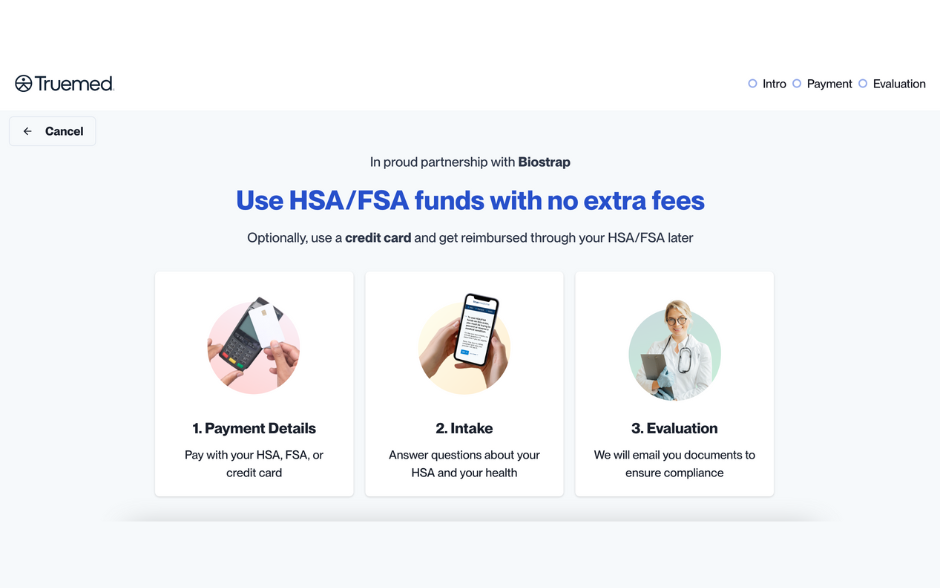Have you ever blocked someone on social media so they couldn’t send you a message? GABA, an amino acid, works a lot like this feature. It prevents certain brain signals — most notably fear and stress — from reaching your brain and wreaking havoc throughout your nervous system.
This is why people who suffer from chronic stress and anxiety disorders use GABA to find relief. But that’s only half the story, and it’s important to understand how GABA works in the brain if you’re interested in its effects.
So what is GABA and what does GABA do to the brain? Read on to find out the life-changing possibilities of adding GABA to your wellness routine.
What Is GABA?
GABA (gamma-aminobutyric acid) is an amino acid and a primary inhibitory neurotransmitter in the brain. Ordinary neurotransmitters send chemical signals to the brain to elicit certain responses that keep the body safe and healthy.
GABA is considered an inhibitory neurotransmitter because, instead of sending a signal to nerve cells, it prevents a signal from being sent. There are two main types of GABA, GABAA and GABAB, and both play an important role in mood regulation. GABA attaches to protein receptors in the brain called GABA receptors to slow or inhibit activity, says Dr. Michael Breus, The Sleep Doctor.
“GABA’s big role in the body is to reduce the activity of neurons in the brain and central nervous system, which in turn has a broad range of effects on the body and mind, including increased relaxation, reduced stress, a more calm, balanced mood, alleviation of pain, and a boost to sleep,” he explains.
So what kind of activity does GABA keep from reaching the brain? Think excitatory neurotransmitters — anxiety, stress, and fear are all signals that GABA blocks. Instead of allowing these messages to reach brain cells, GABA binds to GABA receptors to promote relaxation, reduce anxiety, improve mood, and boosts social skills.
Most of us aren’t new to the effects of GABA. Alcohol is a GABA activator — that’s why it makes us feel so happy and social (if only for a short while). Anti-anxiety drugs also bind to GABA. In fact, most of the leading drugs prescribed to treat anxiety are GABA activators.
What Does GABA Do?
Since GABA soaks up adrenaline and related stress chemicals, people with low GABA will feel the effects of stress and anxiety more intensely and more often. Low GABA activity has been shown to exacerbate mental illnesses, including depression, social anxiety disorder, and post-traumatic stress disorder (PTSD). Symptoms of low GABA include feeling disorganized, having racing thoughts, increased heart rate and being unable to relax or get restful sleep.
In addition to influencing anxiety, low GABA plays a role in certain medical disorders. Seizures and ADD are both linked to low GABA, for example. People who have Illnesses that affect their motor skills, like Parkinson’s, also tend to have low GABA levels.
People with low GABA activity can benefit from supplements or adding GABA to their diet. By switching the brain back into low gear, GABA can have a profound effect on a person’s feelings. It induces a calm and relaxed emotional state in a sea of worry.
GABA for Anxiety
The role of GABA in anxiety cannot be understated. According to a 2019 study published in Cellular Neuroscience, new approaches to GABA treatment have the potential to reduce major depressive disorder (MDD) even more quickly than current anti-depressants on the market. While it’s clear that GABA promoters reduce anxiety, it’s important to take care when considering such medications. Using synthetic drugs may result in additional side effects that can exacerbate stress or lead to other struggles.
GABA for Sleep
The effects of GABA can also improve sleep (common sleeping pills like Ambien also bind to GABA receptors). Sleep research shows that people who suffer from insomnia have 30% lower levels of GABA in their brains compared to people without sleep disturbances. Moreover, these low GABA levels persisted even after waking, confirming that poor sleep plays a role in daily mood.
Though it was a small study, these results are promising. They suggest that even people without insomnia or other sleep disorders may find that increasing GABA reduces daytime sleepiness.
GABA for Gut Health
The gut and the brain are inextricably connected, so it’s no surprise that GABA affects digestion. Dr. Will Cole, a functional medicine expert and natural healthcare advocate, explains that improperly-functioning GABA cells in the brain can wreak havoc in the gut.
“Your intestinal lining also has its own GABA receptors, which help to digest food and regulate gastrointestinal activity by producing gastric acid.”
He adds that certain bacteria strains have been shown to boost GABA receptors in the gut, suggesting the importance of maintaining a healthy gut microbiome.
Adding GABA to Your Life
Introducing more GABA into your life through dietary changes or supplements has the potential to reduce the constant state of stress and anxiety in the brain and restore homeostasis. Even if you don’t suffer from anxiety, supplementing with GABA can make you more resilient against stressful events when they occur. And GABA may also protect you from diseases like Parkinson’s and other motor skills or mood-related disorders.
GABA Supplements
GABA supplements have risen in popularity as an alternative to common prescription antidepressants. Picamilon is a popular synthetic drug that crosses the blood-brain barrier and is converted to GABA to induce a calming a soothing effect. Phenibut is similar, yet with stronger anti-anxiety effects. It’s unregulated in the United States.
Despite the increasing demand for manmade GABA producers, consumers should proceed with caution. Since there isn’t enough research to determine the long-term effects of GABA supplements and whether or not they cause dependency, using natural brain-enhancers to promote GABA instead may be a safer alternative.
Herb and Root Sources of GABA
There are many naturally-occurring sources of GABA, aside from those found in food. Take the herb valerian root, for example. It’s common as a natural sleep and relaxation enhancer but has also been shown to increase GABA. Kava is another popular treatment for anxiety that has been shown to have a strong calming effect. Studies show that kava makes people feel more relaxed and social because it binds to GABA receptors, producing a sedative effect.
Further research confirms that botanical anxiolytics (herbs that treat anxiety) stimulate GABA receptors. Specifically, St John’s Wort and Ginkgo Biloba were found to reduce the effects of psychiatric disorders, including anxiety.
“In this regard, anxiety may be managed without the harsh side effects of pharmaceuticals using nutritional and botanical treatment as well as lifestyle changes,” write the study’s authors. Lemon balm, ashwagandha, and jasmine have all been cited as additional GABA enhancers.
Dietary Sources of GABA
We’ve touched on the importance of gut bacteria in maintaining healthy GABA levels. That’s why adding more healthy bacteria into your diet is a smart way to support GABA production. Studies show that fermented foods like Miso, kimchi, and tempeh may result in the direct production of GABA.
Other studies show that consuming certain GABA-promoting foods, rich in healthy bacteria, helped people fall asleep faster. By decreasing inflammation, reducing intestinal permeability (leaky gut), and improving gut-to-brain communication, the microbiota found in these foods also have the potential to restore gut health overall.
Get More GABA to Feel Good
It’s clear that GABA plays an essential role in helping us feel relaxed and content. Having low GABA can cause a host of negative effects — from depression and anxiety to seizures and Parkinson’s disease. Fortunately, nature provides a host of GABA supplements that can be ingested through herbal remedies or nourishing foods. Synthetic GABA sources are also available but should be used with caution and with professional medical advice. Adding GABA to your life can help you get healthy, reduce panic, and invite more calm and serenity into your daily experience.



